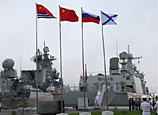
Gao Xinpu, a division director of the National Organ Donation Management Center under the Red Cross Society of China, said the society's legally recognized liabilities do not include the allocation of donated organs.
He also said the society has no access to the allocation, and therefore "cannot initiate an allocation at all".
"Only organ procurement organization workers can do that," he said.
At the website of the members-only China Organ Transplant Response System, the allocation process is open to OPO coordinators, OPOs, and transplant hospitals.
System head Wang said that organ allocation involves medical expertise, and that the system helps ensure a fair allocation regardless of the financial status of waiting patients.
"Each OPO should set up its own organ donation coordinator team to detect and approach potential donors, facilitate organ donations, and initiate allocation via the system," he said.
China had recorded 918 public organ donations on the mainland by July 7 this year, according to Gao of the Red Cross National Organ Donation Management Center.
"All of them were witnessed by Red Cross organ donation coordinators," he noted.
Huo Feng, OPO director under the General Hospital of Guangzhou Military Command, said every transplant hospital should strictly abide by the country's laws and regulations in conducting organ donations and transplantation surgeries.
He also denied that his hospital had paid the Shenzhen Red Cross for sourcing organs.

















 Severe rainstorms batter SW China quake-hit regions | Pedestrians fall into river after bridge collapses
Severe rainstorms batter SW China quake-hit regions | Pedestrians fall into river after bridge collapses


![]()
